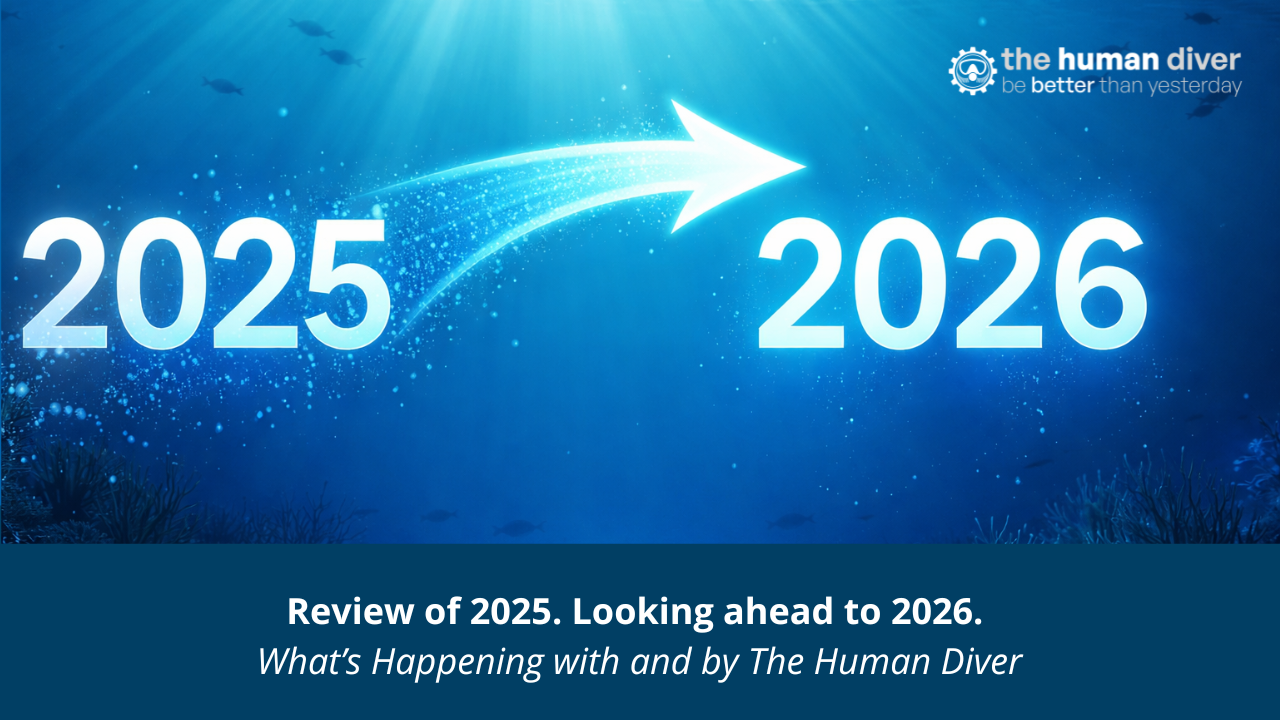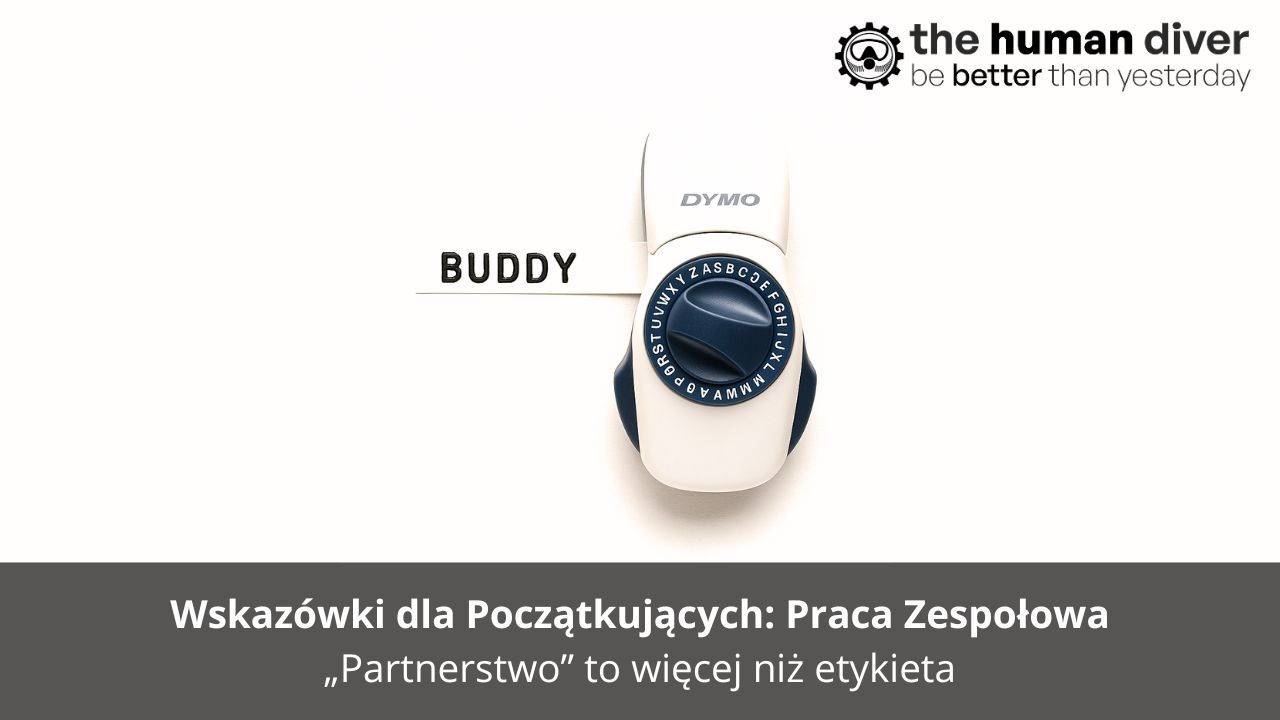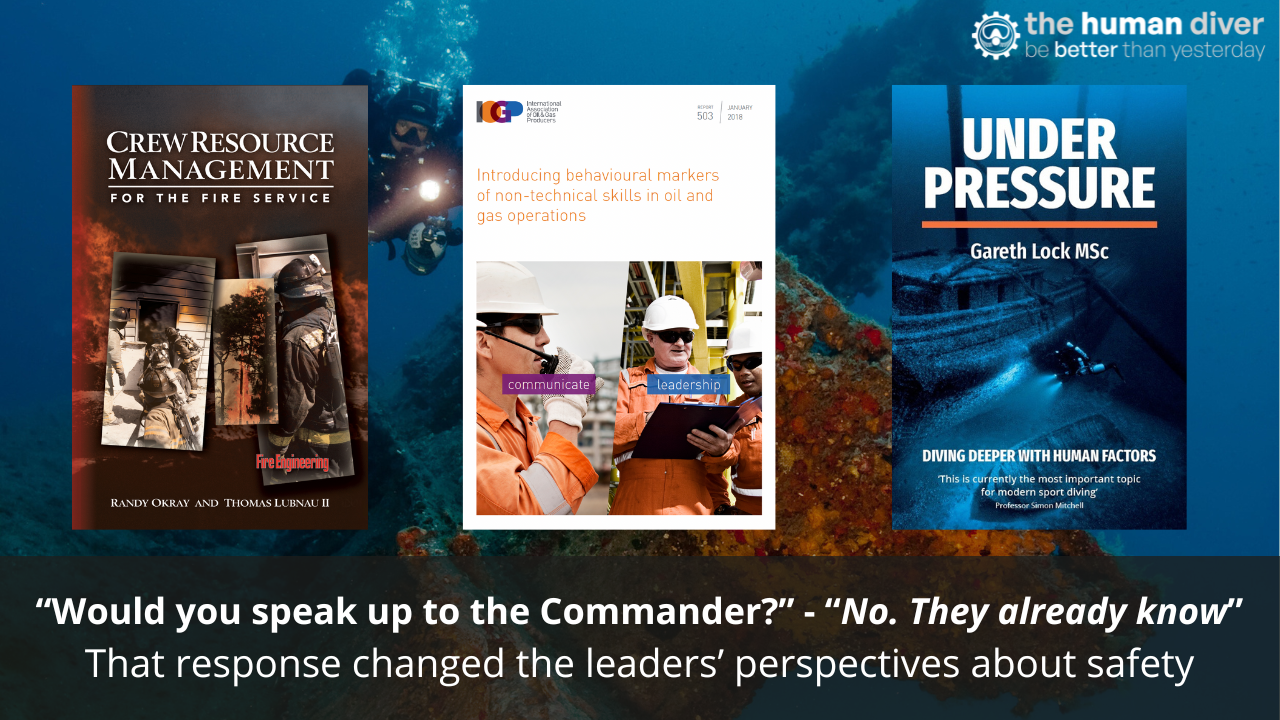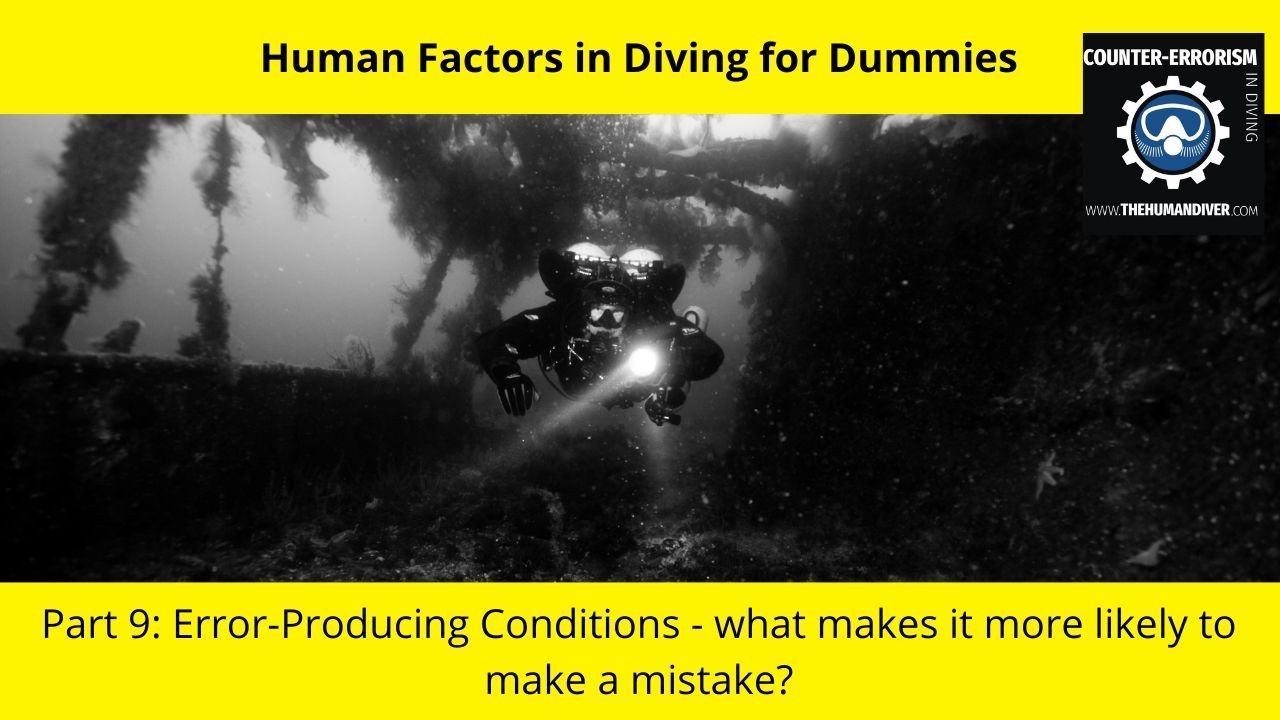
HF in Diving for Dummies: Part 9: Error Producing Conditions - what makes it more likely we make an ‘mistake’
Nov 19, 2022 Have you noticed how when you’re stressed or tired more things seem to go wrong? It’s often known as “Murphy’s Law” but is there more to it than that?
Fatigued or Tired?
Well, things certainly might seem worse when we’re not feeling our best but as you’re probably aware, it’s more likely that it’s our condition that’s causing the errors in the first place. Research has shown that being tired or fatigued has a negative effect on our ability to use our brains. This includes things like problem-solving, memory, alertness, attention and managing stress. Tiredness is a short-term event, which can be relatively easily solved. For example, we get tired when we’ve had one late night followed by an early morning. Fatigue is long-term; a doctor working long hours and changing shifts.
So why do we need to think about this as divers? Everyone knows you wake up as soon as the cold water hits, right?! Sadly, that’s not enough to override all of the effects I’ve listed above, which can still be a problem. Same with coffee- that’s a short-term boost that won’t help for long. Most of us wouldn’t consider going on a dive having drunk alcohol and yet fatigue and tiredness have similar effects. Tiredness slows down our thinking, makes it harder to remember things and more difficult to figure out what to do if something isn’t going right. It also increases our risk-taking behaviour…there’s a reason why you won’t find a clock in a casino- they want you to stay and get tired!
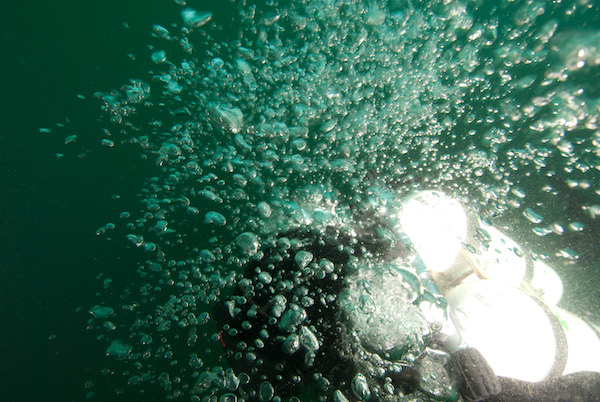
Stress - Distress or Eustress?
The other factor that can negatively affect us is stress. When we talk about stress we normally think about negative stress or Distress. This is the type of stress we feel when we’re in an uncomfortable situation, somewhere where we’re scared or under pressure. The amount of distress felt will differ from person to person depending on the situation. Some people will be very nervous at the thought of diving with sharks, whereas others might be feeling the opposite, Eustress, which is a positive feeling. The same goes when we talk about standing up in front of a class to teach or doing a deep/cave/wreck dive for the first time. You can think of stress as being like a bucket that fills up the more stressful the situation. The more full it is, the less capacity we have to deal with problems. We can empty our buckets by doing things we enjoy or find relaxing, such as reading, running or playing computer games. Some people can cope with a full bucket for longer than others but ultimately we all have our limits. It can be hard to spot people whose bucket is getting full, especially if we don’t know them. Indicators can be talking a lot (or going very quiet), excessive checks on equipment, buddy or the plan, and appearing not to listen or understand what is being said.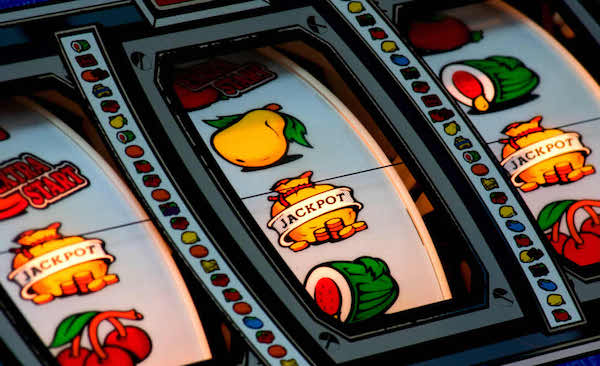
How many lemons?
Years ago I was introduced to the “three lemons” concept. The idea is that if three lemons line up on a slot machine, it’s game over. So before and during dives, we must look for lemons and if we get three then it’s likely that stress levels have risen enough that it could negatively affect things and we should probably call the dive. Lemons are anything that raises stress levels, so will differ for each person, what may be a lemon for you may be a minor inconvenience for someone else. Something like a blown o ring for example; might be stressful for a new diver especially if they don’t have any spares, but unlikely to even raise an eyebrow from an experienced diver. They also can change according to when they happen- the o ring example might not be a problem if it occurs before the dive but if it blows just as you jump in will almost certainly be a lemon as it will involve a lot more work in order to sort it out.
I was on a dive with a friend who hadn’t done much diving recently. Before we started, his stress level was already a little higher than usual based on the fact he felt out of practice; One lemon. While we were setting up he had a few minor equipment problems which although not huge were enough to start getting him a little frustrated; Two lemons. When we got to the dive site, his o ring blew; Three lemons. Although it was an easy fix, by this point he was showing clear signs of frustration and I knew that if we were to try and push on with the dive if anything happened during it he might not be able to cope. We had a chat and he agreed that yes, he was too stressed and needed to calm down. We went back to the centre and got out of our suits. By the time we’d sat down with a coffee and started debriefing I could see that he’d relaxed considerably and had his usual capacity back. We went for the dive that afternoon and had a nice relaxing dive which he said afterwards was just what he needed to get back into it.
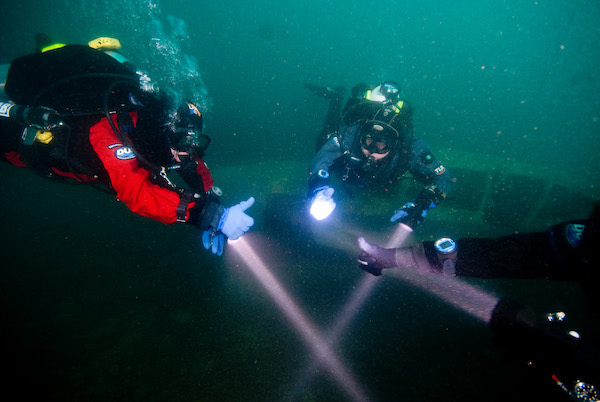
Sunk Costs - hard to say no?
It can be hard to call a dive for things that seem so small, especially if it won’t be possible to do the dive again if you’ve had to pay for it or it’s critical to a goal (such as a certification course), something we call “Sunk cost fallacy”. But the key question to ask is “If something goes wrong, do we all have enough capacity to deal with it?”. If the answer is probably not or no, then that should help you make your mind up.
Summary
In summary tiredness, fatigue and stress can cause us to behave in ways that may not help us when diving and could actually cause us harm. Making sure we’re well rested before a dive isn’t just so we can enjoy it more, it’s actually to keep us safe. Add stress into the mix, and things can get lethal fast, so it’s worth being aware of your own stress behaviour so you can identify if you don’t have the capacity to do the dive, as well as know how your buddies act when they’re stressed. Watch out for those lemons!
Jenny is a full-time technical diving instructor. Prior to diving, she worked in outdoor education for 10 years teaching rock climbing, white water kayaking and canoeing, sailing, skiing, caving and cycling, among other sports. Her interest in team development started with outdoor education, using it as a tool to help people learn more about communication, planning and teamwork.
Since 2009 she has lived in Dahab, Egypt teaching SCUBA diving. She is now a technical instructor trainer for TDI, advanced trimix instructor, advanced mixed gas CCR diver and helitrox CCR instructor.
Jenny has supported a number of deep dives as part of H2O divers dive team and works as a safety diver in the stunt industry.
If you'd like to deepen your diving experience, consider taking the online introduction course which will change your attitude towards diving because safety is your perception, visit the website.
Want to learn more about this article or have questions? Contact us.


